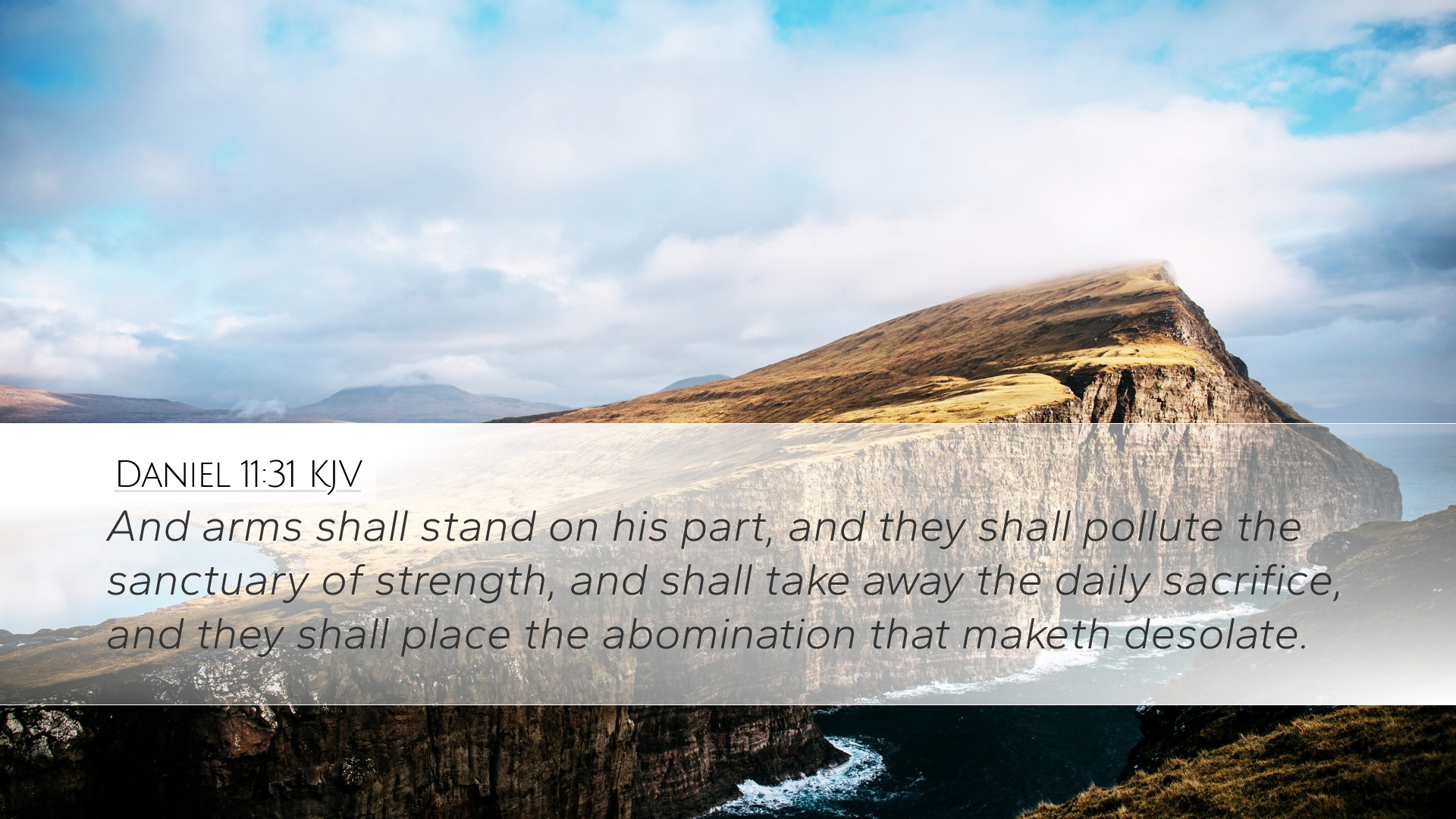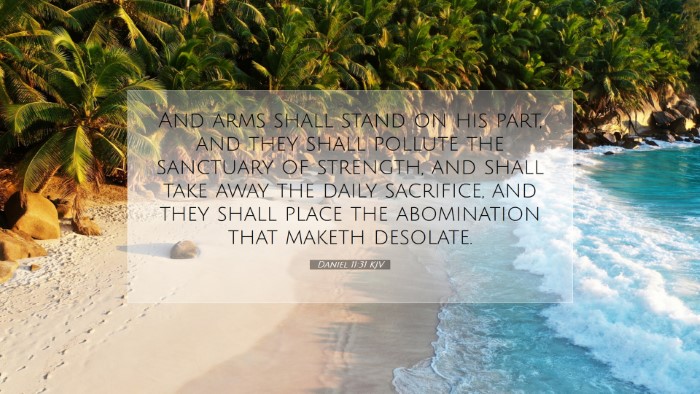Commentary on Daniel 11:31
Daniel 11:31 states: "And arms shall stand on his part, and they shall pollute the sanctuary of strength, and shall take away the daily sacrifice, and they shall place the abomination that maketh desolate."
This verse is pivotal in the prophetic literature attributed to Daniel, particularly in its implications for the persecution of the faithful and the desecration of the holy.
Historical Context
The context surrounding Daniel 11 encapsulates the historical dynamics of the kingdoms that would rise and fall in succession.
The prophecy reaches its climax with the descriptions of a king who will act with arrogance and contempt towards God and His people.
Exegesis and Theological Insights
The passage reflects a time of great turmoil where the Jewish people face oppression. The "arms" that "shall stand on his part" are often interpreted as military forces aligning themselves with oppressive regimes, specifically referring to the forces associated with Antiochus Epiphanes.
This ruler committed acts that are identified as part of the “abomination of desolation” foretold in both Daniel and later echoed in the Gospels.
Matthew Henry's Commentary
According to Matthew Henry, this passage refers to the corruption of worship and the cessation of true sacrifices as a result of the actions of an evil ruler.
Henry emphasizes that this verse foreshadows the ultimate disruption of temple worship, a sign of divine judgment against a people who have turned away from God.
He notes the significance of the "daily sacrifice," which represents the routine and structured acts of worship that were essential to the Jewish faith.
Albert Barnes's Insights
Albert Barnes provides a detailed interpretation that draws upon the historical events surrounding Antiochus Epiphanes, who halted the sacrificial system and erected an idol in the temple, thus fulfilling the prophecy.
Barnes remarks on the "abomination" as a symbol of complete desecration and rebellion against God, suggesting that these actions would lead to significant spiritual and moral consequences for the people of Israel.
Adam Clarke's Analysis
Adam Clarke elucidates further by noting the eschatological implications tied to Daniel 11:31.
He posits that the actions described not only refer to immediate historical figures but also foreshadow future events relating to the end times.
Clarke emphasizes the necessity for believers to remain steadfast in faith even amidst severe persecution, reminding readers that the desecration of the sacred places is a warning but also a call to prepare spiritually.
Application for Contemporary Audiences
The relevancy of Daniel 11:31 extends beyond its historical roots; it serves as a sobering reminder to contemporary believers about the nature of spiritual warfare.
It challenges pastors, students, and theologians to reflect on the state of worship in their communities and to remain alert to the influences that may seek to disrupt their faith practices.
Calls to Action
- Stay Vigilant: The mention of "arms" signifies that believers should be aware of spiritual and physical battles that impact their communities.
- Prioritize Worship: Understanding the importance of daily sacrifice as an act of devotion helps to reestablish a commitment to worship amidst distractions.
- Prepare for Trials: Acknowledging the warning of persecution prepares believers to stand firm in faith when faced with opposition.
Conclusion
Daniel 11:31 serves as an urgent reminder of the consequences of turning away from God and the importance of maintaining faith in the midst of trials.
Through the combined insights of historical commentators like Matthew Henry, Albert Barnes, and Adam Clarke, one can appreciate the depths of this scripture, recognizing its application for both historical understanding and contemporary faith practices.
As theologians and scholars study this verse, may they seek not only knowledge but also the strength to uphold the sanctity of their worship and resist the tides of cultural and spiritual pollution.


